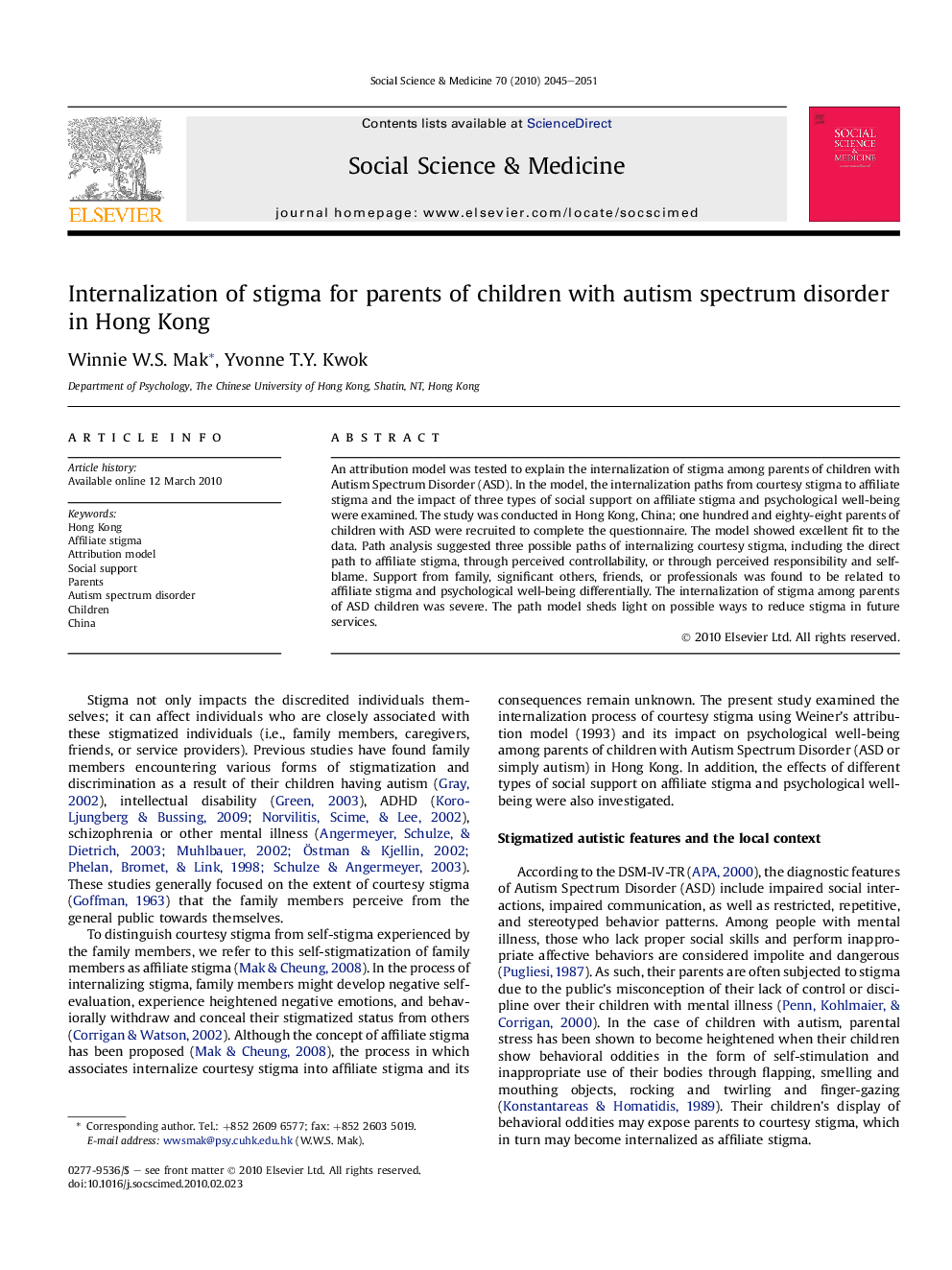| Article ID | Journal | Published Year | Pages | File Type |
|---|---|---|---|---|
| 7338419 | Social Science & Medicine | 2010 | 7 Pages |
Abstract
An attribution model was tested to explain the internalization of stigma among parents of children with Autism Spectrum Disorder (ASD). In the model, the internalization paths from courtesy stigma to affiliate stigma and the impact of three types of social support on affiliate stigma and psychological well-being were examined. The study was conducted in Hong Kong, China; one hundred and eighty-eight parents of children with ASD were recruited to complete the questionnaire. The model showed excellent fit to the data. Path analysis suggested three possible paths of internalizing courtesy stigma, including the direct path to affiliate stigma, through perceived controllability, or through perceived responsibility and self-blame. Support from family, significant others, friends, or professionals was found to be related to affiliate stigma and psychological well-being differentially. The internalization of stigma among parents of ASD children was severe. The path model sheds light on possible ways to reduce stigma in future services.
Related Topics
Health Sciences
Medicine and Dentistry
Public Health and Health Policy
Authors
Winnie W.S. Mak, Yvonne T.Y. Kwok,
